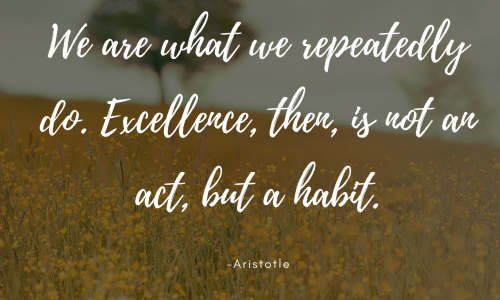Employment Development – Five Elements of a Coaching Session
“Perfection is not attainable, but if we chase perfection we can catch excellence.” – Vince Lombardi
Each person is unique and will come into the business with a unique set of skills and potential. This argues for a customized employment development plan (training and coaching) for each employee. Of course, the end objective is to have every salesperson behave in a consistent and predictable way in interfacing with customers; however, it is important that sales leadership recognize individual differences, helping each employee to optimize innate capabilities. This not only means helping them perform at their best in their current roles; it’s much broader. Good coaches will strive to understand and assist the employee in realizing long term personal goals and dreams. This means that good coaching and development are filled with a special kind of commitment to support and help a person; it’s about building a trusting relationship with a human being. And thus, good coaching is a critical role for the sales manager for not only business growth, but for employee engagement and loyalty as well.
Like other facets of the sales leadership process, it is most important to establish a rhythm or an expected routine for coaching sessions. The focus of these meetings is to facilitate employment development and growth . For the purpose of ensuring the best use of time and to optimize overall effectiveness, here are a few thoughts on five key elements for a successful coaching session:
• Agenda (sent out before the meeting) is reviewed up-front with verbal acknowledgement and confirmed understanding between the coach and employee as to what is to be accomplished in the meeting (role-play, a review of instructional videos or other materials, etc.)
• Active engagement and participation in the session by both employee and coach
• Honest, objective, non-judgmental feedback and counsel from the coach
• Open, two-way communications between employee and coach
• Confirmation at the end of the meeting as to what was accomplished with respect to the agenda and goals for the next session
Consistent, committed execution on coaching will result in improved business growth and better customer experience.
Coaching is a process and a learned skill. Your managers will need guidance in developing requisite capabilities to be competent coaches. If you need assistance in training and developing your sales managers to be competent coaches, we can help you with that. Contact me at adam.vital@avbgs.com or (281) 817-7391 for a free consultation. Here’s my calendar for your convenience in scheduling an appointment: https://calendly.com/adam-vital



